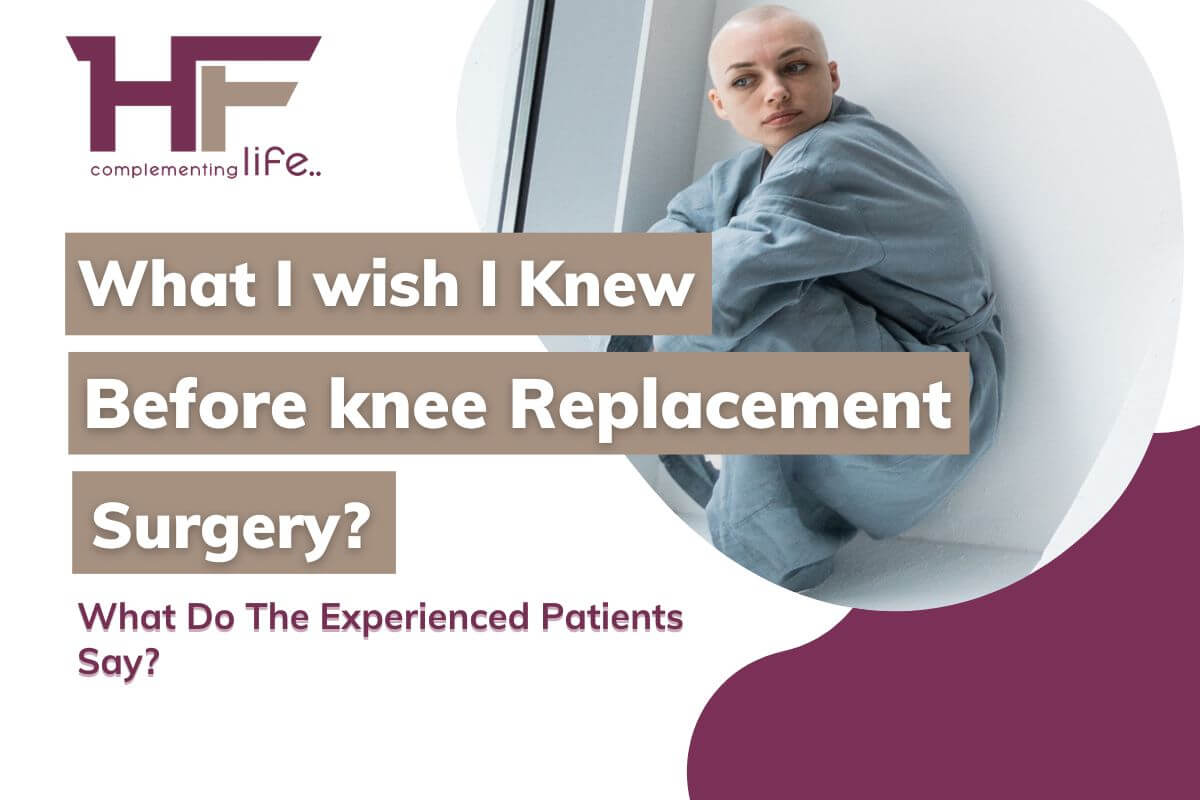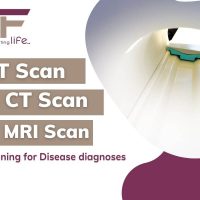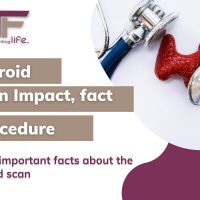When life allows you to refute indulging in questions like What do I wish I knew before knee replacement surgery and instead know; everything about the post-surgical life before, why not embrace it?
Perhaps, that is how you can stay prepared for all challenges and be conscious of the significant ways to topple them. As a result, speedy wound recovery and better life quality come on your way!
Ready to know it all?
CContents
Overview of Knee Replacement Surgery: How Worthwhile?
Also called Knee Arthroplasty, knee replacement surgery is a clinical process medical experts pursue to replace a part or whole of your knee joints with artificial support, that of metals, ceramic, plastic, and more.
The primary goals of this surgical procedure are to –
- Eliminate your severe and persistent knee pain,
- Improve your joint functions for sitting, walking, or climbing stairs, and
- Prevent any kind of damage to the surrounding cells, tissues, nerves, and blood vessels during the surgery.
Doctors recommend knee replacement surgery for various health conditions, such as – 1. Osteoarthritis, i.e., wearing down or damages in the protective or flexible tissues; lying at the end of your bones, 2. Rheumatoid arthritis, where your immune system attacks your musculoskeletal health, causing inflammation in your joints, 3. Arthritis invoked from an extensive injury or trauma, 4. Benign or malignant tumor growth in your knee joints, 5. Accidents and sports injuries, and so forth!
During this surgery, an expert orthopedic surgical team comes into action, making an incision over your knee and taking out the damaged or worn-out bone and cartilage. Then, they shape the bone surface to fit the artificial prosthetic part precisely and move ahead, fixing it!
From thereon, the prosthetic component lay expected to mimic the natural movements and functions of your knee joints, thereby; enhancing your mobility! You need a duration of hospital stay for this procedure, and maintain strict health protocols to secure a faster recovery. This duration differs from one case to another!
Indeed, this treatment method pertains to both risks and benefits. Hence, how to balance them out is a prior matter of concern instead of crying out later and stating what I wish I knew before knee replacement surgery.
Risks of Knee Replacement Surgery –
Such serious operations like knee replacement surgery do hold certain risk factors. They are –
- Infections near the area of the incision,
- Blood clot formations in your deep veins and those further traveling to your lungs,
- Injury and bleeding to the nearby nerves and/or blood vessels,
- Severe joint stiffness during the post-surgical period,
- Implant issues, like loosening of the implant or degeneration over time, and
- Allergic reactions to the material used in the prosthetic component and the anesthetic dosage.
Benefits of Knee Replacement Surgery –
Likewise, such an advanced contribution of medical science to the healthcare industry does bring certain health benefits, as follows.
- Knee replacement surgery can restore your mobility and boost the range of motion you can perform. In other words, movements become easy!
- It prevents the joint disease from escalating into more dangerous and life-threatening ones!
- You can return to your favorite activities, from golfing to gardening, walking, and all of that!
- You get to minimize your dependency on medical pain-relievers and anti-inflammatory drugs to fetch relief from the pain in your knee joint, as they may trigger many other cardiovascular and renal complications in the years to come!
- You can derive better sleep and restfulness, devoid of the constant discomfort both at motion; and at rest after a knee replacement surgery!
How Long Does It Take To Recover From Knee Replacement Surgery: The Most Crucial Question!
Well, into the common subject of what I wish I knew before knee replacement surgery comes the primary question, how long does it take to recover from it? The answer to this is subjective, depending on –
- The type of knee replacement surgery (total Knee replacement or partial) you pursue,
- Your immune system,
- Your age,
- Present health condition,
- Your activity and fitness level before the knee replacement surgery,
- Any risk development,
- How well you care for yourself and follow the recovery norms, etc.
Medical experts note that it requires nearly 12 to 18 months to recover completely from a knee replacement surgery. The initial recovery period after knee replacement lies within the first three weeks, and you can resume basic activities thereafter. However, your knees may even take up to three to six months to let you indulge in the same!
The hospital stay typically involves five to fourteen days, depending on your recovery progress and type of surgery. During this time, the healthcare professionals observe you and give you all sorts of medical aids.
At your discharge, your doctor will tell you what not to do after knee replacement, and you need to abide by it to determine a faster recovery; that’s on you!
Why Is There So Much Pain After Knee Replacement Surgery: What It Feels Like?
There’re various reasons why you have so much pain after knee replacement surgery, namely –
Bone Fracture Surrounding The Implant
When it comes to the question – Why is there so much pain after knee replacement surgery – Bone fractures surrounding the implant come up as a common concern! Here, the pain you have; is a sudden sharp one after a painless recovery phase!
The fracture may occur in the skin bone near the upper end. It may also be in the thigh bone, in the lower endpoint! If and when it’s a minor one, a non-surgical casting may be enough to cure it. But the majority of periprosthetic fracture (i.e., the fracture near the orthopedic knee implant) needs surgical management.
Aseptic Loosening
Another reason why you suffer from pain after knee replacement is aseptic loosening, or in other words, the implant wearing out and getting loose. Such a condition, and such pain, typically occurs after ten years of your surgery or so! This also means an immediate post-surgical issue is rare.
You may feel this pain specifically when you bear weight. It’s more of an activity-related pain that reduces with rest! However, such a condition may even; require surgical management to revise the replacement form.
Kneecap Issues
When severe pain and knee weakness takes the stage together after your knee replacement surgery, it can be an effect of kneecap issues. You may have significant pain and pressure on your kneecap when getting up from bed or chair, walking upstairs or downstairs, bending or straightening the knee, etc.
Such knee pain typically occurs due to the extensor mechanism rupture. It can be a dislocation due to kneecap mal-tracking. It can also exist as an outcome of abnormal bone formation in your knees after the knee replacement surgery, called heterotopic ossification.
Alignment Problem in The Implant
Irrespective of the implant brand and material, its alignment plays a crucial role in evoking pain in your knee after a knee replacement surgery. Yes. A knee implant, while poorly aligned, can witness myriads of issues in your daily life. Not just pain but; the uneven distribution of force and weight it leaves across the joints can cause difficulties in your movements.
Besides, the friction a poorly aligned implant causes creates easy room for wear and tear, swelling, and muscle imbalances. Herein, you would typically feel the pain when doing any physical activities. You are likely to experience instability and improper balance.
Nerve Damage
Since every part of your body, including your knees, are full of nerves, and they are indeed delicate, one or more of them may get damaged during the operation. Although surgeons invest enormous attention and care to prevent such damage, it sometimes; turns unavoidable. It is when you may have pain after the surgery that may or may not improve later on!
A pinched nerve or neuroma is very common and a reason; why there’s so much pain after a knee replacement surgery. Such a condition taking place in your lower back may also trigger pain in your knee joints.
Infections or Inflammation
Last; but not least, infections and inflammation serve as another vital reason; why you may have so much pain after knee replacement surgery. They arise near the surgical site and are often called ‘periprosthetic joint infections.’ And inflammation is a subtle natural response to this or may be due to an injury.
Such conditions stimulate the pain receptors in the surrounding tissues near your knee joints and lead you to experience discomfort and pain. In severe infection cases, the bacteria can enter your bloodstream, fueling systemic side effects alongside the pain, like fatigue and fever.
Note:
If you have so much pain after your surgery, it’s certainly best to contact your doctor immediately and seek medical aid. Sometimes, medications and antibiotics may work to reduce your pain. But sometimes, you may require other invasive approaches to fix your problem. Your healthcare professionals are the ones who can diagnose and identify what is the exact cause and how severe it is, and then tell you what stands appropriate!
Dos and Don’ts After A Knee Replacement Surgery – The Top Solutions and Mistakes!
No wonder when your doctor tells you what to do and what not to do after knee replacement, you ought to follow it to avoid further pain, discomfort, and complications. Many healthcare professionals have their own specialized plans. However, if you want to know the basics from now on, here they go!
To Do After Knee Replacement: The Top 5 Faster Recovery Solutions!
The top five measures that you must adopt to ensure a faster recovery from your knee replacement surgery are –
Light Exercise and Physical Therapy
After the first few weeks of knee replacement surgery, a light exercise, like moving or walking a little and often, like every one or two hours, can work great for you to enhance your post-surgical recovery. You can also opt for a structured physical therapy program that your doctor recommends!
This improves blood circulation to your knee and the surrounding anatomy. As a result, you can efficiently combat the risk of blood clots, infections, inflammation, etc. Likewise, simple exercises can always help give strength and flexibility to your musculoskeletal system, with or without implants!
Lifestyle and Dietary Modifications
Remember that knee replacement, partial or total, is a major operation, and your body is vulnerable to various health problems and diseases then. You better be conscious about your diet and lifestyle to overcome this health challenge and not repent later, thinking you wish you knew about it; before!
You have to drink a lot of water to keep yourself hydrated. You need to eat a balanced diet with more nutrients, like vitamins, minerals, and fibers, and no unhealthy junk. You must avoid smoking and drinking, get proper sleep and rest, and maintain a healthy daily routine. That’s how your immune system can gather more strength, and your tissues heal faster!
Adherence to Post-Operative Instructions
On the same note, if you wish to recover faster, you have no other option than to adhere to the instructions given by the healthcare team. You need to take your medications as and when prescribed. You may have to dress the incision wounds as instructed and take care of it. For this, you can, of course, get nursing help right at home!
Moreover, your doctor may provide you with walking aids and other equipment to use; during the initial recovery phase! That’s for your safety and increasing mobility simultaneously. You have to follow such post-operative care to avoid injuries and implant loosening.
Post-Surgical Side Effect Management
As already seen above, there exist multiple side effects or complications against knee replacement surgery, and managing them effectively; stands; necessary. It’s perhaps integral to your post-surgical care. For instance, your doctor may prescribe blood thinners to prevent and manage blood clots after a knee replacement.
Your doctor may ask you to take medications or adopt acupuncture techniques, i.e., needle insertion into the pain-prone area to revitalize the sensory nerves. Yes. That’s what helps nerve pain after knee replacement arising from operational damage. Your doctor may also ask for non-invasive transcutaneous electrical nerve stimulation therapies herein! All significant post-surgical side-effect management methods!
Gradual Come Back to Normal Activities
You cannot expect to jump on your feet the next day you go back home from the hospital after a knee replacement surgery. That’s impractical! You have to have patience and resume your normal activities gradually, phase-wise. You need to give your bones and tissues to heal naturally!
Initially, you start with the basics; going to the washroom using a walking aid and then moving around a bit. After a couple of weeks, you can climb stairs slowly and have regular walks in and around your home. Furthermore, when your doctor permits you to go outside and ride a car or pursue your other daily work, you can get, set, and go! But everything has a time. Note that, please!
What Not To Do – Top 5 Mistakes After Knee Replacement!
Well, dos and don’ts are very much mutually inclusive when it comes to post-operative healthcare! It’s certainly essential for you to know the top 5 mistakes after knee replacement to topple them and fetch a speedy recovery! They are the following.
Neglecting How to Sit or Lie with The New Implant
One of the top 5 mistakes after knee replacement that you must avoid is sitting in a bed or chair and lying down; in improper ways! As per medical experts, you mustn’t sit in the same position for more than 45 minutes during the post-surgical phase. In fact, you cannot sit anywhere and everywhere. Sofas, recliners or lower chairs, and stools are to avoid; indeed!
Similarly, lying on the back, with your knee straight and elevated with cushions and pillows, is a wise choice with the new implants after knee replacement. Neglecting it and using improper ways to sleep, like bending your knee while resting or sleeping on the side of the implant, can take a toll on your recovery process.
Not Following All Measures of Wound Care
Another mistake after knee replacement is to skip and avoid all measures of your wound care. Yes. From how to dress your wounds and then dress yourself to when to avoid showers and how to go through it, all; you need to be particular and cautious about! You should use apply the wound medicines you are asked to!
Wearing tight pants is a big no-no! So is trying to bend down to tie the show lace or whatever! You cannot take showers during the initial recovery period without a prior doctor’s consultation, as they may cause infections and fluid buildup near the incision area! Even when you get the permit key, you must not use a bathtub to wash yourself. No squatting, bending, or anything!
Ignoring Any Pain, Overexertion, or Other Red Flags
No doubt, a big mistake that; patients often do; after knee replacement is to ignore any signs or symptoms of health deterioration. Yes. Even if the red alert appears as sudden overexertion or extreme tiredness after resuming normal activities, you mustn’t ignore it! During this time, you must neither push yourself too hard nor stop pushing yourself enough. A balance is requisite!
Doctors may even recommend pain relievers after knee replacement surgery, and that’s a part of post-surgical care. You cannot neglect to have them until asked otherwise! You have to also listen to your body precisely this time. If you see a rest may help stop pain or discomfort, freeze your movements for a couple of hours, and do so!
Skipping Meals and Not Following Daily Routines
True that you may sometimes not have the urge to eat meals, especially with those spiceless and oil-free leafy greens and saltless boiled poultries. But trust me, skipping your meal is never helpful. It’s a mistake, instead! You can always have the option to improvise your diet by consulting with healthcare professionals. You can always eat healthy proteins and snacks after your surgery.
On the same note, the daily routine your doctor has set for you, that of taking medications, drinking water or fluids, sleeping, walking, exercising, and so forth, is for your body to fall in pace gradually. Not following it is a setback to give yourself; to your health!
Failing to Follow Up with Your Doctor After A Few Months
As & when time progress after your knee replacement surgery, you miss out on follow-ups! That is a top mistake of yours! You need to stay in touch with healthcare professionals and seek routine check-ups after such a serious operation as your knee replacement. They can examine your physical condition, order diagnostic tests if necessary, and treat recurrent health complications.
It means; even if everything goes fit and fine, it stands your responsibility to keep your healthcare team posted. That is when you can get rid of the risk factors urgently and enjoy better mobility with the new implant for a few more decades.
Bottom Line:
Today, most patients with knee replacement surgery talk about the valuable lessons that; they wish they knew; earlier! This article of a compilation of such word-of-mouth! For some, staying dedicated to exercise and physical therapy makes the difference, subsequently; boosting strength and mobility after knee replacement. While for many others, taking steps to avoid overexertion works right!
You can embrace all of the post-surgical care mentioned here; in this article to ensure a speedy recovery and secure a better life quality and a pain-free future. For more information on what you should know before a knee replacement, stay tuned to our blogs at www.healthfinder.in.










Comments